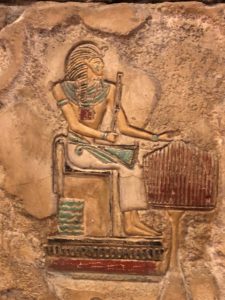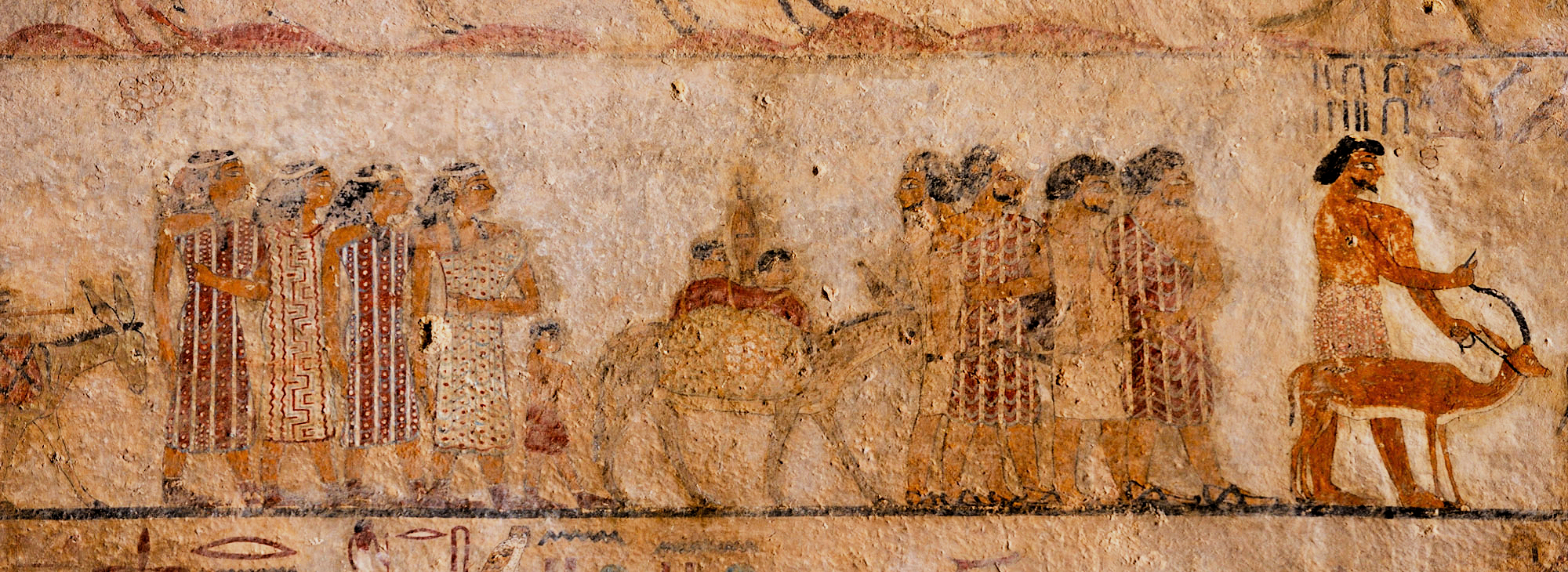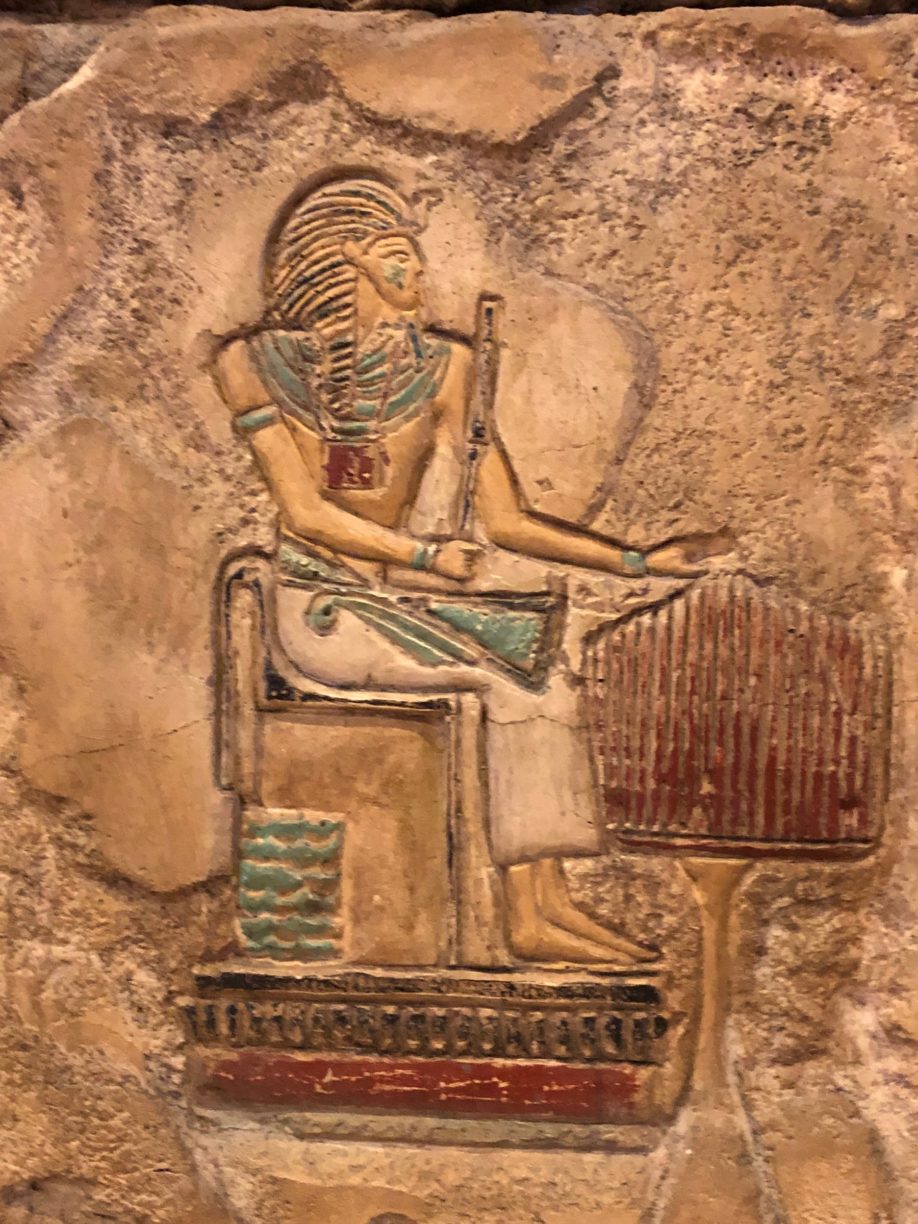 I love the 3-4 months right before a book releases! That’s when I get to begin sharing all the fun research and behind-the-scenes STUFF I’ve discovered about the characters–especially Joseph & Potiphar’s Wife!
I love the 3-4 months right before a book releases! That’s when I get to begin sharing all the fun research and behind-the-scenes STUFF I’ve discovered about the characters–especially Joseph & Potiphar’s Wife!
My newest novel, Potiphar’s Wife, releases on May 24th, and WOWZERS! There are some fascinating things I learned (and wrote) about Joseph and that bad girl of the Bible!
In last week’s blog post, I explained how historical findings met biblical truth Potiphar served as captain of the guard Pharaoh Khyan during the Hyksos Dynasty.
“Now Joseph had been taken down to Egypt. Potiphar, an Egyptian who was one of Pharaoh’s officials, the captain of the guard, bought him from the Ishmaelites who had taken him there.” Genesis 39:1
Let’s Talk Truth, Fact, & Fiction
Lots of folks ask what process I use to write my books. I think they’re asking how I fold all that research into Scripture’s Truth and still get believable characters to walk off the page–or, at least, that’s my goal when writing a biblical novel.
It’s a three-layered approach:
- Biblical Truth is the foundation.
- Historical Facts are the building blocks.
- Creative Fiction is the mortar that holds Truth and fact together–creating a believable story for you to enjoy!
History Meets Fiction
Hyksos literally meaning, “foreign rulers.” These non-Egyptian kings ruled in the north–Lower Egypt–from the capital city of Avaris, while Egyptian pharaohs ruled the southern portion–Upper Egypt–from the capital city of Thebes.
In the novel, Joseph arrives as a slave in Egypt at the same time Pharaoh Khyan takes Lower Egypt’s throne. Pharaoh Khyan appoints his best friend, Potiphar, as captain of his bodyguard. Potiphar and Khyan have grown up together under the compassionate care of a noble woman who chooses to cook in Potiphar’s villa. Both men call her Ommi, mama in Egyptian.
Why Does Timing Matter?
 Egypt’s hot, dry weather preserves its ancient history, so we know Egypt has always been–and still is–one of the most unique locations on planet earth. During the Hyksos period, Egypt was even MORE unique.
Egypt’s hot, dry weather preserves its ancient history, so we know Egypt has always been–and still is–one of the most unique locations on planet earth. During the Hyksos period, Egypt was even MORE unique.
Remember Hyksos means foreign ruler. Who were these foreign kings? They were Canaanites! That’s right–historical data says that wealthy Bedouins displaced tribes from the Land of Canaan who then rose to high-ranking position in Egypt’s government.
Who were the wealthy Bedouins that displaced all those people from the Land of Canaan?
Abraham
“After the treaty had been made at Beersheba, Abimelek and Phicol the commander of his forces returned to the land of the Philistines. Abraham planted a tamarisk tree in Beersheba, and there he called on the name of the Lord, the Eternal God. And Abraham stayed in the land of the Philistines for a long time.” Genesis 21:32–34
Isaac
“Then Abimelek said to Isaac, ‘Move away from us; you have become too powerful for us.’ So Isaac moved away from there and encamped in the Valley of Gerar, where he settled. Isaac reopened the wells that had been dug in the time of his father Abraham, which the Philistines had stopped up after Abraham died, and he gave them the same names his father had given them.” Genesis 26:16–18
Jacob
“Then Israel said to Joseph, ‘I am about to die . . . And to you I give one more ridge of land than to your brothers, the ridge I took from the Amorites with my sword and my bow.'” Genesis 48:21–22 (emphasis added)
Hyksos in Fiction
I believe Scripture supports my theory that as God prospered Abraham, Isaac, and Jacob, it was their growing flocks and herds that displaced Canaanite tribes.
Though I found no academic or scholarly resource that confirmed my fiction as fact, the story you’ll read in Potiphar’s Wife builds on the entirely plausible premise that Abraham, Isaac, and Jacob were the wealthy family of Bedouins that caused many Amorites to emigrate to the fertile pasturelands of Egypt’s Delta.
If these high-ranking, immigrant Hyksos had heard stories of their ancestors’ displacement, wouldn’t they bear a grudge toward Hebrews? And if the Egyptians carried animosity toward the foreigners who had taken over their nation–because they’d been displaced by wealthy Hebrews–wouldn’t native Egyptians also hate Joseph’s family?
Sometimes fiction helps explain the Truths we find in Scripture–like this scene after Joseph is made vizier and his brothers come to Egypt during the famine to buy grain:
“They served [Joseph by himself, [his] brothers by themselves, and the Egyptians who ate with him by themselves, because Egyptians could not eat with Hebrews, for that is detestable to Egyptians.” Genesis 43:32 (emphasis added)
God’s Overall Plan
In the coming weeks and months, we’ll talk more about Egypt and its culture. I’ll introduce you to Potiphar’s wife, a Minoan princess, and share some of the things I’ve learned in the rich and fascinating research process for this book.

Before I share the “heart lesson” that struck me about God’s sovereign decision to place Joseph in Egypt during the Hyksos’ reign, let me share foundational facts:
- Under Hyksos rule, Lower Egypt became a melting pot of diversity. History confirms these foreign rulers expanded trade into the Levant (Canaan), Greece, and farther into Egypt’s southern nations.
- The Hyksos were more interested in trade than record keeping. Even the ancient king lists were sketchy during this time, so the fact that Joseph (or Zaphenath-Paneah) was missing from any historical discoveries isn’t surprising.
- Before and after the Hyksos dynasty, Egypt’s pharaoh’s ascended the throne through royal families or military coups. At no other time in Egypt’s history would a Hebrew have risen to the second-most-powerful official in the ancient world’s most powerful nation. It makes sense that a nation–transitioning in their ethnic identity–would be willing to embrace a leader whose ethnicity was different than theirs.
Egypt As A Womb
Now for the “heart lesson” I promised. The Bible is full of imagery, and God often refers to Himself as our Father. Egypt plays a huge role in Scripture from the beginning (first mentioned as the name of one of Noah’s grandsons!), and it is the place God chose to “grow” Jacob’s family into a nation.
“These are the names of the sons of Israel who went to Egypt with Jacob, each with his family…” Exodus 1:1
Birth Picture
Remember the Garden of Eden? Adam and Eve had perfect communion with God–walking unencumbered in the cool of the evening.
Sin changed all that. God mercifully kicked them out of the Garden so they couldn’t eat from the Tree of Life and live forever in their sin! The rest of the Bible is the story of God’s relentless (and sometimes painfully slow) journey to restore that original, perfect communion–the untainted relationship between God and humankind.
When Joseph went to Egypt, God spoke infrequently and to only a handful of people: Noah, Abraham, Hagar, Sarai, Isaac, Rebekah, etc. God spoke to Jacob–first through a dream and then He actually wrestled with Jacob! God also spoke to Joseph through dreams, and Joseph’s whole life seemed like a wrestling match.
New Plan
Then Jacob’s family went to Egypt. We hear nothing of God’s communication during that time.
“Now Joseph and all his brothers and all that generation died, but the Israelites were exceedingly fruitful; they multiplied greatly, increased in numbers and became so numerous that the land was filled with them. Then a new king, to whom Joseph meant nothing, came to power in Egypt.” Exodus 1:6–8
But God decided it was time to radically CHANGE His relationship with His people, so He called a man named, Moses, to speak on His behalf:
“Say to Pharaoh, ‘This is what the Lord says: Israel is my firstborn son.” Exodus 4:22
Israel had been in Egypt for over 400 years! God delivered His firstborn from bondage and began talking to ALL OF THEM. He spoke from Mt. Sinai. He gave them the Law. He gave them the Tabernacle through which priests could offer sacrifices for anyone who wished to be in a right relationship with the God of Creation.
It was the FIRST step in restoring the Garden relationship!
Our Birthing Process
Writing Potiphar’s Wife was a birthing process for me. It was hard–mentally, physically, emotionally. And, spiritually, it was an awakening.
It was my Egypt. I entered feeling favored, but I soon identified with Joseph in that prison cell. Then came the bondage. Anger. Unforgiveness. Blame. Israel’s bondage lasted 400 years. Mine was considerably shorter but intense. Sleepless nights. Hopelessness.
That birth canal gets pretty uncomfortable, doesn’t it?
But then we hear that Voice. The breakthrough for the first time–or the hundredth–is life-giving rescue. Maybe it’s as clear as if He were shouting through a megaphone. Or maybe it’s a gentle whisper. Either way, it requires faith to believe it was really Him speaking.
And then comes the light. The Exodus. That moment we’re free. And it’s another step closer to that perfect communion restored. Someday, we’ll see Him face-to-face.
Thank You, Jesus, for walking this earth, enduring the cross, conquering the grave. Thank You, Holy Spirit, for indwelling, guiding, comforting. Thank you, Heavenly Father, for pursuing me–again and again.
Today’s Question:
- Are you experiencing an Egypt? Know that it’s preparing you for new birth! Another step closer to perfect communion–and an opportunity to know Him better NOW.
- Was there anything about the Hyksos that you found interesting?




Comments 9
Ah, Mesu! Such depth, such transparency! What a Father we have!
Author
YES, my friend! What a Heavenly Father we have! ❤️
I just finished reading and reviewing this wonderful book. Your Biblical fiction is always so well done both historically and fictionally. Thanks for another great book!
Author
Oh, Loraine! I’m so excited to hear you got access to it–and even more thrilled to hear you enjoyed it! Thanks so much for your encouragement. I always hold my breath to hear those first reader comments. 😘
I think I will always be most grateful to God for using words in stories like yours to reach deep in my heart and minister to me. It’s quite sneaky actually. He lures me in with your wonderful writing and then WHAM! Heart work and purposeful confrontation. Yes, I think I will always be most grateful.
Author
Oh, sweet friend, I’m so grateful as well. The way He works is so amazing, isn’t it? I love how He sprinkles in hints and nudges here and there, and then–as you said–WHAM! His velvet brick hits us right between the eyes. I hope the “heart work and purposeful confrontation” (love that phrase) was balm to your pliable soul, gal! ❤️
You have a wonderful way to explain the history and the nuggets of your research. I so enjoy learning even more history from you. I mean the Bible is so full of interesting things but yet it’s full of everything we need for our salvation. I have read Joseph’s story so many times but I know you are going to dig deep in PW. I can’t wait!
Author
You’re so right, Brenda! I’m reading in Hebrews right now, and I learn something new every morning! It doesn’t matter how many times I’ve read those same verses. The Holy Spirit teaches us something new from God’s Word if our hearts have been softened by the Blood of the Lamb!
Hi Mesu, You know how much your Biblical/historical fiction delights me. I am so looking forward to reading this one… it’s one of my favorite stories. I’ve always wondered what Potiphar’s wife did when Joseph came to power… Gunna be a good read! Blessings dear one!